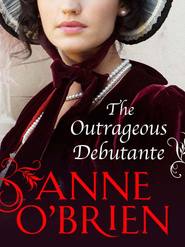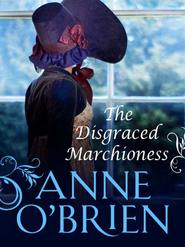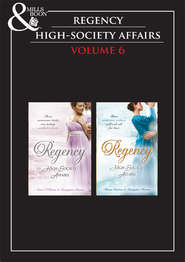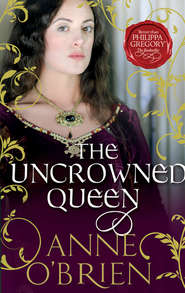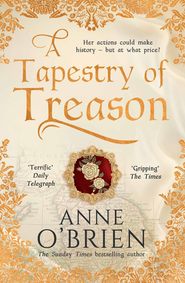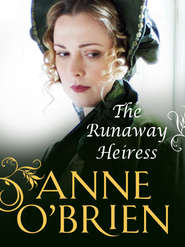По всем вопросам обращайтесь на: info@litportal.ru
(©) 2003-2024.
✖
The Enigmatic Rake
Настройки чтения
Размер шрифта
Высота строк
Поля
‘Dear Sarah!’ The redhead was in no way disturbed by this announcement. ‘Why ever should you not? I enjoy having your company.’ Judith Faringdon, now Countess of Painscastle, poured tea into her china cup with a flamboyant gesture. ‘Until you have decided what you will do next, where else should you stay? You are never a burden to us.’
‘You have been too kind, Judith. You are my dearest friend—but I would not outstay my welcome. I have finally made some decisions,’ replied Mrs Sarah Russell, a youthful widow and mother of a nearly six-year-old son.
‘Ah.’ Judith took a sip of tea. ‘Will you then go back to New York? To Henry and Eleanor and the children?’
‘No.’
‘Oh.’ The Countess frowned a little. ‘I was sure that you would and I know that they would make you welcome. In her letters, Eleanor writes that she misses you.’
‘I have thought of it,’ Sarah acknowledged. ‘But I cannot allow myself to be dependent on them either. It was bad enough that Lord Henry had to pay the cost of my passage from New York. It is time that I determined the future for myself and John.’
‘So what have you decided? Will you perhaps visit Thea and Nick at Aymestry?’
‘No.’ Another uncompromising answer.
‘They too would be pleased to see you. I know that Thea feels that she owes you much in achieving her present state of sublime happiness.’ Judith smiled at her romantic recollection of the recent wedding that the family had celebrated, of the love that had so palpably wrapped around Nicholas and Theodora, soft as velvet, strong as forged metal.
Mrs Sarah Russell sighed. That was the problem. Her friends had nothing but good intentions towards her and her young son, however unlikely it might appear that they would be willing to give any thought to her happiness or comfort. Amazingly, her history had become closely interwoven with that of the Faringdons. Instrumental in aiding and abetting her brother Edward Baxendale to make a fraudulent claim against the Faringdon estate, she knew that she did not deserve any consideration from them. There were no extenuating circumstances, even though she had been driven by her conscience to unmask her brother and his trickery. But they had forgiven her, a knowledge that still had the power to warm her heart. Sarah had severed her connection irrevocably with her brother and had been taken under the collective wing of the Faringdon family.
Sarah had aided Eleanor in her elopement to join Lord Henry, Judith’s cousin, in America, and Lord Henry had taken her in and given her a home in New York when she had most needed one. Her decision to return to England had been prompted by the fraught relationship between Lord Nicholas, Henry’s younger brother, and Sarah’s own unknown sister Theodora, an adventurous lady who had been adopted outside the family and brought up by Sir Hector and Lady Drusilla Wooton-Devereux. Reconciled to Thea, Lord Nicholas had made Sarah welcome at Aymestry Manor, both for her own sake and, of course, as a member of the family when he had married Theodora. Judith—well, Judith and Simon had simply held out the hand of friendship. Thus, Sarah knew that her debt to the Faringdons was immeasurable. She could never repay such kindness and they would never ask it of her. But it was more than time that she stood on her own two feet. For herself and her son. Her pride would allow her to be dependent no longer.
‘What will you do, then?’
Sarah drew in a breath, anticipating the opposition that would meet her carefully thought-out statement, but would not be deterred. ‘I must find a position, some form of employment. I need an income and a settled home for myself and my son. John is now more than five years. He needs a home. So do I.’
‘Sarah! No!’ As expected, Judith put down her cup with some force.
‘I only have a small pension from the navy since my husband’s death.’ Sarah laid out her argument as clearly and plainly as she could. It had sounded very well at three o’clock in the morning when sleeplessness had finally forced her to weigh her options. ‘I shall receive no further income from my own family, the Baxendales, either now or any time in the future. I made an enemy of Edward, did I not, when I uncovered his nefarious pursuits? So,’ she repeated, folding the napkin on her lap with careful precision, ‘I need a position of employment and an income.’
‘You must not work!’ Judith was suitably aghast.
‘Why not? Many women in my position, women of good family who have fallen on difficult times, would find no hardship in seeking some form of occupation.’
‘But what would you do? Tell her, Simon! It is not suitable that Sarah take employment. Indeed it is not! I cannot imagine what my mama would say if I allowed it. Or your sister Theodora.’ Judith stopped and blinked at the prospect. ‘Although perhaps I can. Thea has a sharp tongue and an apt turn of phrase. She would be horrified.’
The Earl lowered his paper at last. His eyes spoke of understanding and compassion for the lady’s predicament. ‘Sarah must do exactly as she wishes, my dear. Whatever it is, we will help. But I do agree, Sarah, with my wife. You must consider carefully before you take up any position that might be unsuitable for you. I understand your concern over your situation.’ He hesitated. ‘Are you sure that there is not a life for you in New York?’
‘No, I will not go back.’ On that one point she was adamant. ‘But thank you, Simon. I knew that you would understand. I shall remain here in England.’
‘And do what?’ Judith returned to the crux of the matter.
‘I think I could be a governess.’ Sarah’s lack of experience for any position troubled her, but at least this one, based on her own education and upbringing, held a possibility. ‘I have some skills appropriate for the education of a young lady. Or I could be a housekeeper, I expect. Would you give me references, dear Judith?’
‘No, I would not! I am not at all in favour and so refuse to aid and abet you in this ridiculous proposal.’ The Countess reached across the table to grasp Sarah’s restless fingers. ‘I will tell you what I think. You should marry again. You are so pretty, Sarah, it would be quite the best answer.’
‘Judith …!’ Sarah shook her head in frustration but returned the warm clasp. ‘I am twenty-five years old with a son. And little to recommend me in the way of good looks. Not like Thea, or Eleanor—both of them so beautiful. I fear that I would never draw all eyes if I stepped on to the dance floor at Almack’s as they would. I have no income of my own, no influential connections—nothing to recommend me. Who would consider marriage to me?’
Judith frowned and tapped her thumb nail against her pretty teeth, ignoring much of Sarah’s reasoning, selecting the one omission in Sarah’s explanation. ‘So you are not actually averse to remarriage.’
Sarah thought about this. A marriage of convenience? Never. The memory of her husband, John Russell, a captain in the Royal Navy, slowly crystallised in her mind. It was more than five years since he had died at sea in the final year of the Napoleonic Wars, before Waterloo. She was shocked at how unclear his image had become with the passage of time. She had been so young, he some years older, and she had been dazzled by the attention of this grave gentleman in flattering uniform with gold braid. Meeting her at the home of a distant relative in London, he had rescued her from an unsatisfactory home, carried her off and married her in the face of family disapproval. She smiled as she remembered him, a warm, caring man, considerate of his young wife’s inexperience and insecurity. It saddened her that she had seen so little of him during their brief marriage—a matter of months—and he had never set eyes on his splendid son, meeting death in a bloody skirmish at sea within weeks of the child’s birth.
Had she loved John Russell? Well—yes … if love was a deep affection, a warm, gentle, caring emotion.
Her mind flitted to more recent events where her memory was stronger, her emotions more recently engaged. Where she had seen a quite different interpretation of love. She had seen the strength of love possible between Henry and Eleanor, a bright, all-consuming passion that could sweep all before it. And more recently the unshakeable bond created from the heartbreaking difficulties between Nicholas and Theodora, where love had finally triumphed against all the odds. Love, it seemed, could be found in many different guises.
So, no, she realised, she could not accept a marriage simply for money or comfort or future security. Her heart must be engaged.
She became aware of Judith awaiting her answer with growing impatience.
‘No, I am not averse to marriage,’ she replied with a little smile, a ghost of regret. ‘But only if I find someone I can love. I will not marry for less.’ Catching a flash of interest in the Countess’s emerald eyes, she raised her hand, but laughed as she recognised the gleam of a plan being formed. ‘And I would be grateful if you did not set yourself to put me in the way of a suitable husband, Judith!’
It was almost, Sarah decided only a half hour later that same morning, as if fate in a coquettish moment had determined to take a hand in the game. Although for better or worse, she was as yet unsure. It was one thing to be adamant that she needed some gainful employment, quite another to secure a position that she would consider suitable for herself and her son. But wily fate, in the guise of Lady Beatrice Faringdon, imposing in puce and ostrich plumes, decreed that her dilemma be settled with almost unseemly speed. Simon had taken himself to Tattersall’s, leaving Judith and Sarah to finish their desultory conversation over the breakfast cups, when the door opened to admit Lady Beatrice, Judith’s mama. She waved Matthews, the butler, aside when he would have announced her, greeted the ladies and settled herself at the table where she accepted a cup of tea from her daughter.
Lady Beatrice, large and dominant in the small room, had an air of ruffled displeasure about her, causing Judith to eye her askance.
‘Well, Mama. This is early for you to be visiting.’
‘Well!’ The stout lady took a breath and squared her ample shoulders, thus causing her fading red curls and the plumes in her bonnet to shiver. ‘There has been a development.’
Judith and Sarah exchanged glances, but waited in silence. Not for long.
‘It is your brother Joshua. He plans to return to London next week. And not simply a passing visit.’ The expression on Lady Beatrice’s face could only be described as sour. The return of her firstborn, Joshua Sherbourne Faringdon, to her maternal bosom obviously did not fill her with pleasure.
In comparison, Judith’s immediate smile lit her face with delight. ‘Sher! Why, that is splendid news. It is so long … But I thought he was fixed in Paris for the duration. Why the sudden change of plan?’
‘I do not know. Your brother did not deign to tell me in the letter that I have just received. What he did do is issue a list of instructions—as if I had not better things to do with my time.’
‘Ah!’ Judith understood perfectly. ‘And you thought that I would be willing to take them on.’
‘Why not? You have a much closer relationship with Joshua than I.’ Beneath the chill and patent disapproval there was undeniably the slightest layer of hurt, although Lady Beatrice would have been the first to deny it. ‘I have heard not one word from him for over a year and then all he can do is send me a list—as if I were his secretary.’
‘You have not heard from him, Mama, because you are too critical of him and too ready to listen to scandal.’ Judith had inherited her mother’s predilection for plain speaking. ‘You can hardly blame Sher for keeping his distance. It seems to me that—’
Lady Beatrice lifted her hand to bring a halt to any further discussion of her lack of compassion toward her son. ‘I will not discuss your brother’s habits and amusements. They are extreme and—’ She closed her lips firmly on the subject. ‘Suffice it to say they bring no credit to the family. Sometimes I am ashamed to own him.’
Judith sighed. The estrangement was nothing new, with no spirit of compromise or hope of reconciliation on either side. Sher continued to conduct his life with a cavalier disregard for the forms of behaviour that would make him acceptable to the haut ton. Lady Beatrice would tally his many sins and see no good in her only son. ‘Very well, Mama. Tell me what it is that he wants.’
Lady Beatrice extracted a much-folded sheet of paper from her reticule and viewed it with distaste. ‘To open up his town house in Hanover Square,’ she read. ‘To arrange for the child to travel up from the country to join him there. To arrange for some suitable staff—cook, butler and so on—so that all is in readiness for his return—by the end of next week.’
Judith laughed aloud. ‘Well, that sounds fairly much in character! Anything else?’
Even Sarah, a silent observer of this conversation since she had neither met Lord Joshua nor had any knowledge of him, smiled. Another Faringdon! It seemed to her a familiar response by the men of the family, to issue orders and expect them to be carried out quickly and effortlessly.
Lady Beatrice had not finished. ‘He also states that he needs an educated and proficient person to act as housekeeper and also governess to take over the care and education of the child—what is her name? I can never remember—something French. Why he could not have insisted on a good English name I will never understand! Our family have always had English names.’
‘Celestine,’ Judith provided somewhat absently, her mind already occupied with the project and shutting out her mama’s habitual complaints and wilful rejection of the Italian derivation of her own name. ‘Very well. I will talk to Simon about arranging for the provision of staff and …’
Sarah’s interest in the proceedings, fairly mild until this point, now found a sharp focus. Lord Joshua Faringdon. Judith’s brother. Needed a housekeeper and governess for a young girl called Celestine. In London. An educated and proficient person. Why not? She managed to remain silent in a blaze of impatience until Lady Beatrice completed her diatribe and took herself off, delighted at having passed the burden of her son’s return into Judith’s not unwilling lap. Then Sarah fixed her gaze on Judith, who was still perusing the list that her mama had thoughtfully left.






